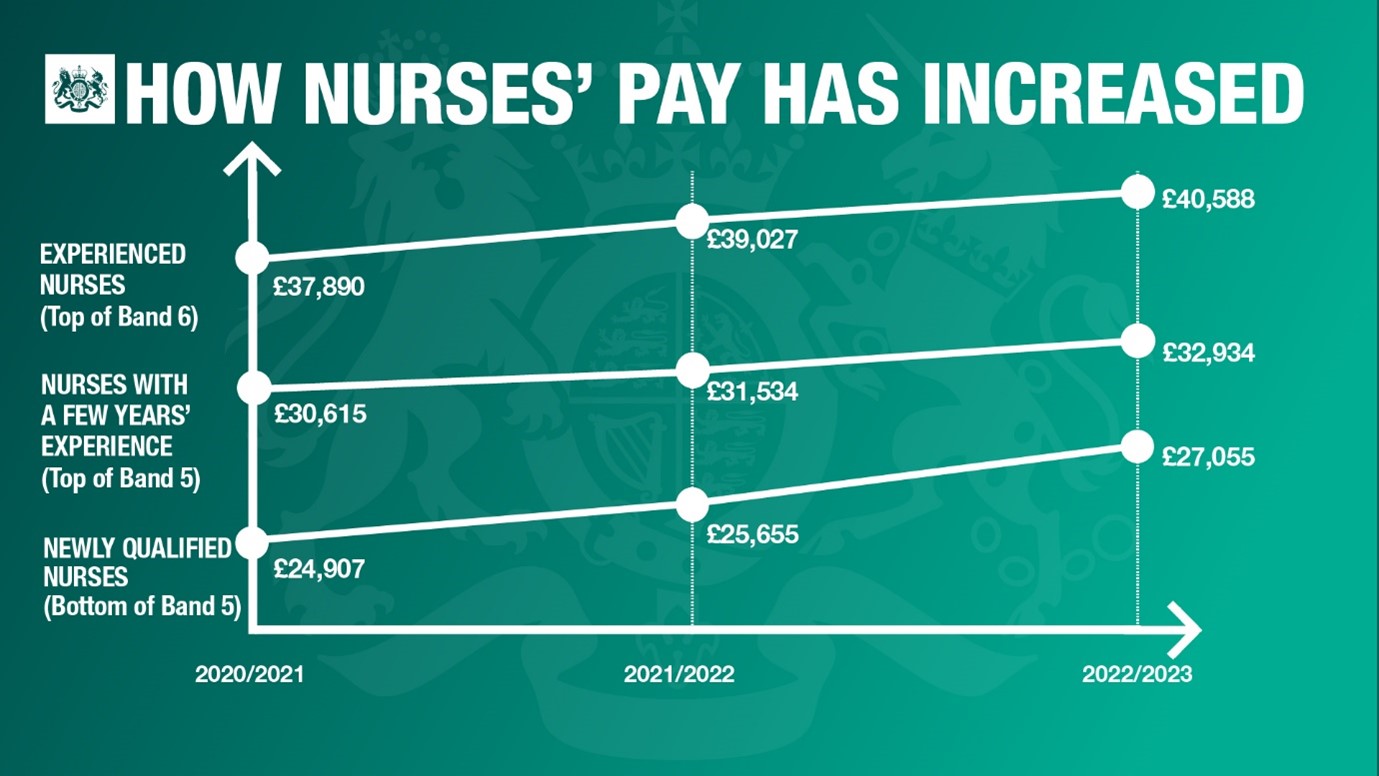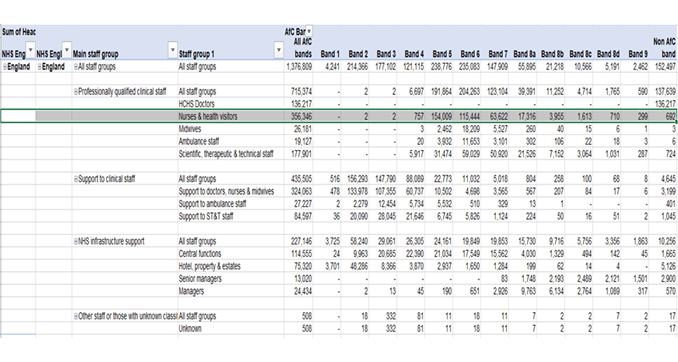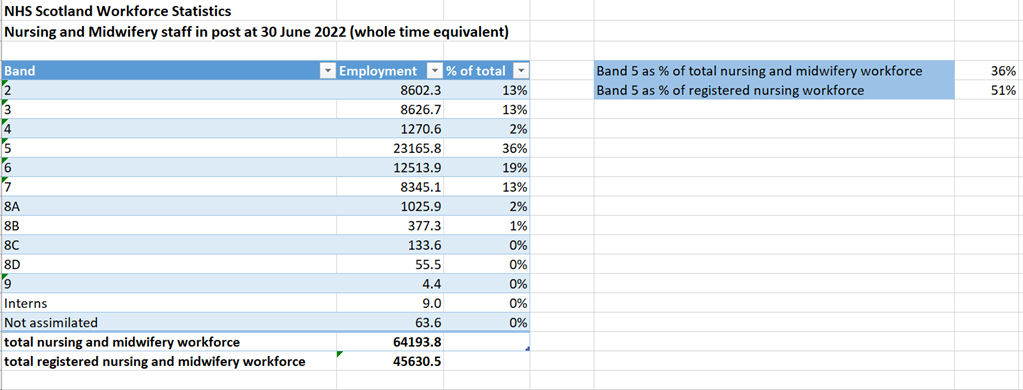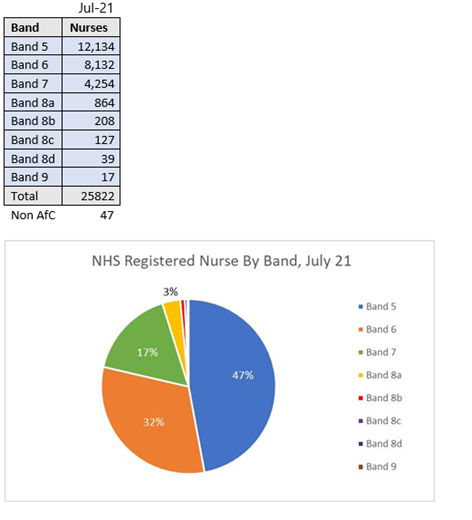As a librarian, it’s still my job to help distinguish reliable and accurate sources of information and debunk misinformation (incorrect, regardless of intent) and disinformation (incorrect, and intended to mislead). RCN members in England, Wales, and Northern Ireland have been on strike this month, and with Scotland members overwhelmingly rejecting the latest pay offer, and no sign yet of the UK Governments budging on pay negotiations, let’s take a look at what exactly an average nurse’s salary is.
There’s a lot of talk in the media about the salary of an ‘average nurse’. But what even is that? And is it different to the ‘average salary’ of a nurse?
Did you spot the difference?
The media talks a lot about the ‘average salary’ of a nurse in the UK, sourced from the UK Government’s press releases such as these: NHS staff to receive pay rise - GOV.UK (www.gov.uk), citing the average basic pay of a nurse to be “around £37,000” as of March 2022.

Source: NHS Staff to receive pay rise (www.gov.uk)
This figure is indeed, an average, as it takes into account the highest band (band 9). A mere 0.08% of the total nursing and health visitor workforce in England is on this highest rate of pay as of June 2022.
But what about an ‘average nurse’? What exactly is an ‘average nurse’, and what is their salary?
These are the two definitions of average - the sum of all divided by instances, which is where we get that £37,000 figure from – adding up the salaries of all nurses and dividing the total equally between the number of nurses in the NHS.
The starting salary of a newly qualified nurse is £27,055, rising to £32,932 at the top of band 5 for the UK devolved countries (except Northern Ireland, their pay scales are lower than in England, Scotland, and Wales). See NHS pay scales 2022 - 2023 (England, Scotland and Wales) and Pay Bands in Health and Social Care (Northern Ireland)
However, this doesn’t mean that the more experienced a nurse, the higher they go, up to band 6 and beyond automatically.
This graph in the image below by the Department of Health & Social Care is disinformation. It leaves out the bottom of band 6 and implies that nurses progress automatically from the bottom of band 5 to the top of band 5 (as they do year-by-year) and conflates this with progressing to the top of band 6 automatically (they do not; rising from a band 5 to a band 6 means applying for a different job, sometimes in management or a speciality, as opposed to general staff nursing).

Source: Department of Health and Social Care on Twitter: "NHS nurses received a pay rise of at least £1,400 this year, on top of a 3% increase last year. We're grateful for their hard work and regret that some union members have voted for industrial action. More details on how nurses' pay has gone up"
So, what about your ‘average nurse’? I used Wales’s Agenda For Change pay scales as an example in my last blog about disinformation, so let’s look at England, Scotland, and Wales this time, A large proportion of qualified nurses (43% in England and 51% in Scotland as of June 2022, and 47% in Wales as of July 2021) are band 5.

Source: HCHS staff groups by region, age and AfC band, June 2012 to June 2022 - NHS Digital

Source: NHS Scotland workforce | Turas Data Intelligence

Source: Wales figures sent directly to RCN Wales by email, by Health Education and Improvement Wales, visuals by RCN Wales)
(I’ve not included Northern Ireland’s band 5 figures, and band 5 and band 6 nurses are grouped together in their latest workforce statistics.)
Let’s also talk about the meaning of the word ‘average’.
As an adjective, this is what ‘average’ means, according to The Cambridge Dictionary. Or in fact you can look up any average definition from any average dictionary – you’ll get very similar definitions, even if the wording varies slightly.
1. “An average number is the number you get by adding two or more amounts together and dividing the total by the number of amounts…”
2. “typical and usual:”
These show two very different definitions and therefore different implications of the meaning of the word ‘average’. A ‘nurse’s average salary’ deals with the first definition of average; the total sum of all the wages, divided by all the nurses. An ‘average nurse’s salary’ deals, or should deal, with the second definition of ‘average’: a standard or level deemed typical.
As we’ve explored, a typical nurse, the one you’d most likely meet, (43% in England and 51% in Scotland as of this year, and 47% in Wales as of last year) is a band 5 nurse.
There are only 17 band 9s out of a workforce in Wales of 25,822 nurses as of July last year, the latest figures received from Health Education & improvement Wales.
A nurse’s ‘average salary’ may well be around £37,000, but an ‘average nurse’s’ salary is £27,055 to £32,932.







